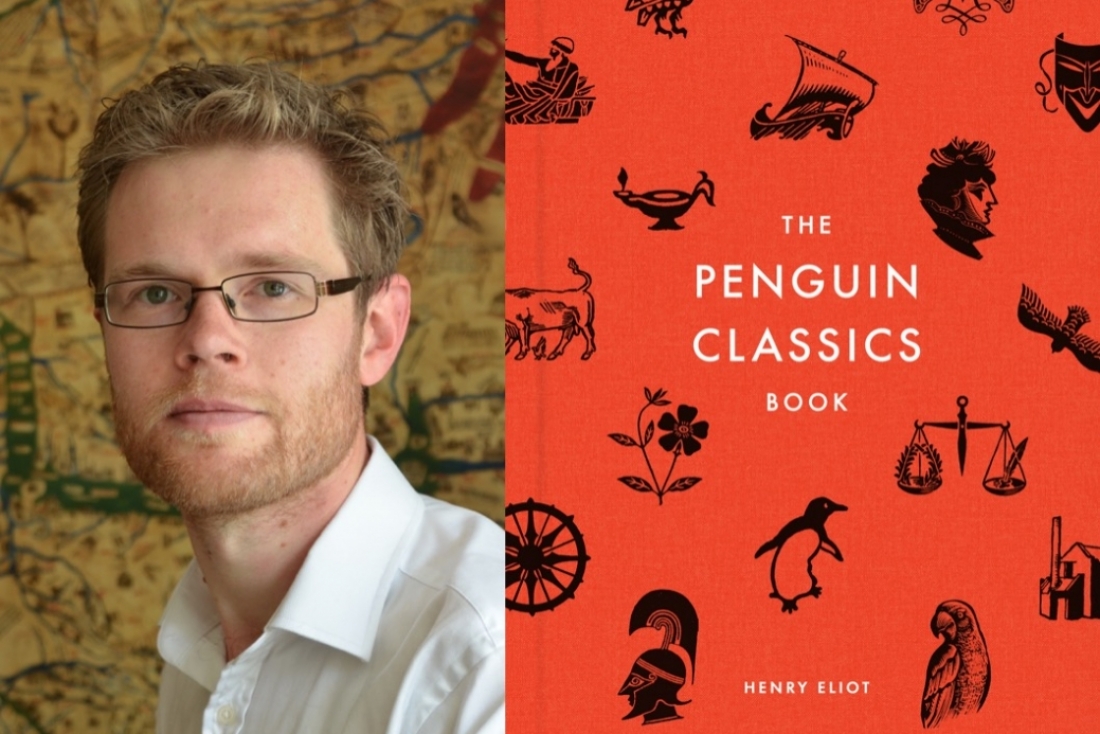

Every book enthusiast, from a literature student to someone who reads simply as a hobby, definitely has a Penguin Classic on their book shelves. It is then, one of the greatest treasures in the world of literature to have a book that compiles every title in the Black Classics series, illustrated by its original cover design. This treasure is called The Penguin Classics Book. Stuffed full of stories, author biographies, book summaries and recommendations, and illustrated with thousands of historic Penguin Classic covers, this is an exhilarating and comprehensive guide for anyone who wants to explore and discover the best books ever written. The man behind this book, Henry Eliot, has spent months in the archives in Rushden while compiling The Penguin Classics Book, handling and documenting every first edition in the Black Classics series to produce this reader’s guide like no other. We had a chance to speak to him about all things literature.
When did your romance with books begin and how has your journey in the literary landscape been so far?
I grew up with lots of books in the house and for as long as I remember I’ve enjoyed reading. Now I feel naked if I don’t have a book in my pocket or my bag.
What were some of your early formative readings?
As a child I loved Alice’s Adventures in Wonderland and I devoured the Sherlock Holmes stories. The first book that really showed me how powerful literature could be was A Room with a View by E. M. Forster: it is a book that forces you to look at yourself and asks how you intend to live your life.
We understand that in terms of literary studies, there are conventions to define a classic piece of literary work, but for you, what defines a classic?
For me, a classic needs to meet three criteria: it needs to have literary quality, it needs to have had some historical significance and it needs to have an enduring reputation. Above all, it needs to be alive: when you read it, it must connect with you. Its spark of insight needs to light a spark inside you. If it fails to do that, it is no longer a work of literature, it is a historical document.
“Books survive because they reveal something important about what it means to be human, and readers want those insights.”
As we come from medieval literature to post modernism, what king of work do you think will become a classic in the future form our current literary produce?
It’s so hard to predict what the classics of the future will be, partly because there are so many books being produced at the moment and partly because there’s so much luck involved. My bet would be on works that are doing something fresh and experimental – as these are likely to be the books that influence later writers. Some names that spring to mind are George Saunders, Hilary Mantel and Sally Rooney.
Tell us more about your process behind compiling The Penguin Classics Book which is surely an extremely important book for literary enthusiasts today.
The Penguin Classics Book was conceived as a companion to help readers navigate the vast landscape of classic literature, from the very earliest epics such as The Epic of Gilgamesh and The Mahabharata to the poetry and novels of the First World War. Originally we imagined the titles as a museum collection, organized into ‘rooms’ of books from different countries and time periods, but gradually those conversations turned into this book. There are lots of links between authors and titles, which hopefully help readers to jump around world literature and make new discoveries, and the book also charts the publishing history of the Penguin Classics series itself.
As we celebrate the known classic of literature, there are also so many pieces brilliant lost forever because they were never found and also some that are no longer in print. How do you feel about such texts and publishing houses today being engulfed by commercialisation that could perhaps be accidentally robbing the world of some great classics.
The poet W. H. Auden said that ‘some books are undeservedly forgotten; none are undeservedly remembered’ – and I think that is true. We shouldn’t forget that hundreds of books fall by the wayside over the years, including many which might have endured as classics in other circumstances. That makes the books that do survive all the more impressive: books survive because they reveal something important about what it means to be human, and readers want those insights. I don’t blame the publishers: books can only survive if there is the commercial demand from readers. I am optimistic: I am convinced that there will always be a readership for classics, because they are the repository of the best human thought over the centuries and we’ll never lose our appetite for that.
What is in store for you for 2019?
After spending the holidays with my parents over Christmas in Bath, familiar from the novels of Jane Austen, I am looking forward to 2019, but so far there are no major projects confirmed.